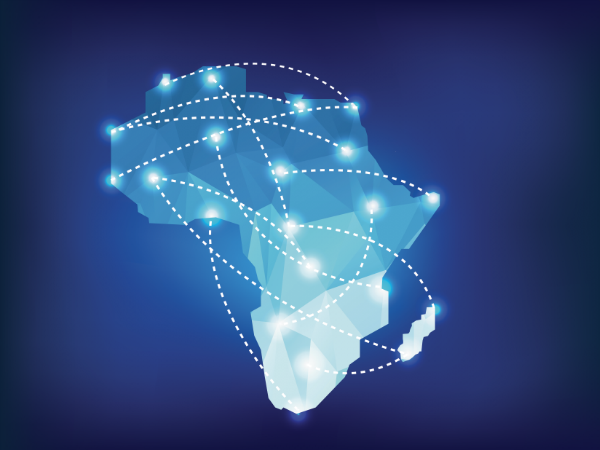Africa has witnessed a substantial increase in its server capacity, reflecting the continent’s rapid digital infrastructure and technological innovation advancements. This surge is largely driven by the growing demand for data storage and processing capabilities, spurred by the rise of the internet, mobile connectivity, and a burgeoning tech ecosystem. As businesses, governments, and individuals increasingly rely on digital services, robust and efficient server capacity has never been more critical.
However, despite this impressive growth, one of the most formidable challenges facing the continent is the reliability of its power supply. Many regions in Africa still grapple with inconsistent electricity access, which poses a significant obstacle to the sustainable operation of data centres and server farms. Frequent power outages, inadequate energy infrastructure, and high electricity costs can hinder the performance of these facilities, ultimately affecting the overall efficiency and reliability of digital services.
Africa must address these power supply issues to fully capitalize on the potential of its expanding server capacity. This could involve investing in renewable energy sources, enhancing grid infrastructure, and promoting policies that support energy access for all. By overcoming these challenges, Africa can not only boost its technological capabilities but also pave the way for a more connected and digitally empowered future.
One of the main challenges facing Africa’s server capacity is the inconsistent and unreliable power supply in many parts of the continent. Inadequate infrastructure and frequent power outages can disrupt data centre operations and lead to downtime, causing inconvenience and financial losses for businesses and individuals relying on these services. This issue has become even more critical as the demand for data storage and processing continues to grow, highlighting the urgent need for improved power solutions.
- Advertisement -
To address the power challenges facing Africa’s server capacity, governments and industry stakeholders must work together to invest in sustainable energy solutions such as solar power and wind energy. By harnessing renewable energy sources, data centres can reduce their reliance on traditional power grids and ensure uninterrupted operations. Additionally, investing in energy-efficient technologies and practices can help minimize the environmental impact of data centres and contribute to a more sustainable future for the continent.
Another key factor contributing to power challenges in Africa is the high cost of electricity. Many businesses and individuals struggle to afford the high electricity tariffs imposed by governments, making it difficult to sustain the operation of data centres and other server facilities. To address this issue, policymakers must consider implementing regulatory measures to reduce electricity costs for data centers and incentivize the adoption of energy-efficient technologies.
The lack of skilled professionals in the energy and data centre sectors poses a significant challenge to improving power infrastructure in Africa. As the demand for server capacity continues to grow, there is a pressing need for trained personnel who can design, install, and maintain power systems for data centres. Governments and educational institutions must prioritize the development of workforce training programs to equip individuals with the necessary skills to address these challenges and drive innovation in the energy sector.
In addition to power challenges, security concerns also pose a significant threat to Africa’s server capacity. Data centres and cloud computing facilities are attractive targets for cyberattacks, which can result in data breaches and compromise the integrity of sensitive information. To address these risks, businesses and individuals must prioritize cybersecurity measures and adopt best practices to safeguard their data and infrastructure from potential threats.
Despite these challenges, Africa’s server capacity continues to expand at a rapid pace, driven by advancements in technology and the increasing demand for digital services. The continent’s growing population and economy offer significant opportunities for businesses to leverage data centres and cloud computing services to improve efficiency and drive innovation. However, to fully unlock the potential of Africa’s server capacity, stakeholders must address the underlying power challenges and invest in sustainable solutions to ensure a reliable and resilient energy infrastructure for the future.
- Advertisement -
Africa’s server capacity has seen significant growth in recent years, presenting new opportunities for businesses and individuals to store and access data more efficiently. However, power remains a major obstacle to fully realizing the potential of this growth, with issues such as unreliable power supply, high electricity costs, and a shortage of skilled professionals posing significant challenges.
To overcome these obstacles, governments, industry stakeholders, and educational institutions must collaborate to invest in sustainable energy solutions, improve cybersecurity measures, and develop workforce training programs to support the continued expansion of Africa’s server capacity. Only through concerted efforts and strategic investments can Africa address its power challenges and unleash the full potential of its server capacity for the benefit of its people and economy.









